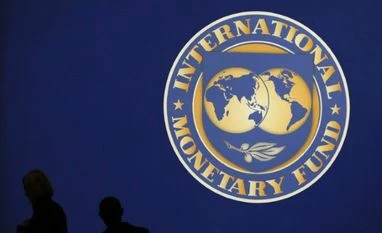The IMF has said that the recapitalisation of public sector banks (PSBs) should be part of a broader package of financial reforms to speed up the resolution of non-performing assets (NPAs), which has attracted more attention in view of the Nirav Modi case.
In the view of the International Monetary Fund, recent policy reforms to address vulnerabilities in the banking and corporate sectors in India have been significant, IMF Deputy Managing Director Tao Zhang said ahead of his visit to India.
The asset quality review, initiated by the Reserve Bank of India (RBI) in December 2015, prompted banks to take steps to recognise all nonperforming assets and ensure appropriately provisioned balance sheets by March 2017. Other important steps include the new Insolvency and Bankruptcy Code, adopted in May 2016; and more recently, the announcement of a major recapitalisation of India's PSBs, he said.
According to a recent Assocham-Crisil study, India's banking sector will be saddled with gross non-performing assets (GNPAs) worth a staggering Rs 9.5 trillion by March-end, up from Rs 8 trillion in the year-ago period.
"While all are welcome steps, we think the PSB recapitalisation should be part of a broader package of financial reforms to speed up the resolution of NPAs, improve PSB governance, reduce the role of the public sector in the financial system, and enhance bank lending capacity and practices," Zhang told PTI in an interview.
Zhang, however, did not respond to specific question related to the case of Indian diamond merchants Nirav Modi and his uncle Mehul Choksi, who are being investigated for their alleged $2 billion swindling of money from the Punjab National Bank.
"We have seen the reports. As a matter of practice, we do not comment on the operations of individual financial institutions. In general terms, what I can say is that we support the authorities' ongoing efforts to strengthen the soundness and resilience of India's financial system," he said.
Also Read
A team of experts recently conducted an assessment in the context of India's participation in the IMF/World Bank Financial System Stability Assessment Program (FSAP), he noted.
"The experts found that the RBI has made progress in strengthening banking supervision since the previous assessment in 2011. For instance, a risk-based supervisory approach has been introduced and Basel III norms have been implemented, as is now increasingly common around the world," Zhang said.
"Nevertheless, the experts recommended legal changes to enable the RBI to extend all the powers currently exercised over private sector banks to public sector ones; in particular, regarding Board member dismissals, mergers, and license revocation," he said.
"Having said that, banks' operational risk management, risk culture, internal control frameworks and external audit function should typically play a central role in preventing fraud," Zhang said in response to a question.
)